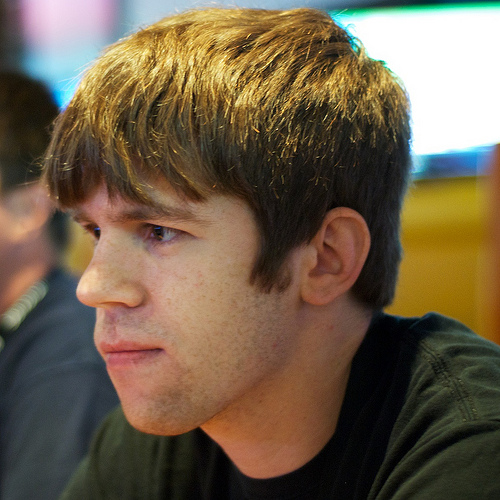Diagnosis
In late 2002, I was admitted as an in-patient to a mental hospital and diagnosed with depression and suicidal ideations (or, in more common parlance, a death wish). A few years later, my diagnosis was “downgraded” to dysthymia, a chronic form of depression with less severe symptoms.
Sometimes, my condition barely seems to affect me. Other times it hangs over me like a huge black cloud. On those days, I feel sad, empty, hopeless, and alone in my own skin regardless of who else is around me, for no reason or any reason.
“I feel sad, empty, hopeless, and alone in my own skin”
Anything—a random song, an innocent phrase from someone I know, even a particular food—can reduce me to tears on those days. I feel a dull but distinct physical pain all over my body. I can’t focus. I feel like I have no energy to the point where even normal daily tasks like getting out of bed or eating feel like too much. This can last for hours or days at a time.
Medication
For about a year following my initial diagnosis, I took Wellbutrin, a frequently prescribed antidepressant and SSRI.
Its positive effects were generally ambiguous or questionable. The side effects, decreased sex drive in particular, were more distinct.
Eventually, these aspects of being on the medication coupled with its cost (insurance generally offers little to no coverage) and my regained ability to function without it prompted the decision to go off of it.
Challenges
It’s entirely likely that I suffered from dysthymia for years before I was diagnosed. Because it’s chronic, dysthymia can be difficult to perceive as its own condition. Those who suffer from it simply accept it as normal, as part of who they are.
Once my condition escalated into depression, getting help was the hardest step. I was absolutely terrified of anyone knowing about it and of going into a hospital where my ability to leave would not be my own decision.
“Those who suffer from it simply accept it as normal, as part of who they are.”
I was also frightened of being on medication. I’d heard and read that it could be difficult to find the right medication or combination of medications to give patients a good quality of life without a lot of negative side effects, even to the point of neutralizing their emotions.
Since receiving treatment, I’ve simply had to maintain awareness of my condition and manage it in ways that don’t involve therapy or medication. I still have good and bad days, and bouts with not having an appetite or not wanting to go outside. I just have to work my way through them.
Strategies
Being in the hospital, spending the vast majority of time away from everything else that comprised my life save for an hour a day with friends and family, and having simple freedoms removed collectively served as a substantial wake-up call. I’d been living with an emotional distance of sorts from these things for several months beforehand; seeing that distance realized changed my perspective and solidified my resolve to get better.
After I was discharged, the subsequent medication and therapy didn’t seem to help much. I tried going outside more often for increased exposure to sunlight to maintain my serotonin levels in lieu of medication, exercising as often as I can to maintain endorphin levels, and changing my diet and those things seem to help me a lot more.
I’ve also found that it helps to share my experiences. More often than I not, I find others who have gone through similar struggles and it helps me to remember that I’m not alone. Making a point of interacting with others regularly helps me to keep perspective and to remember good things that are worth living for.
